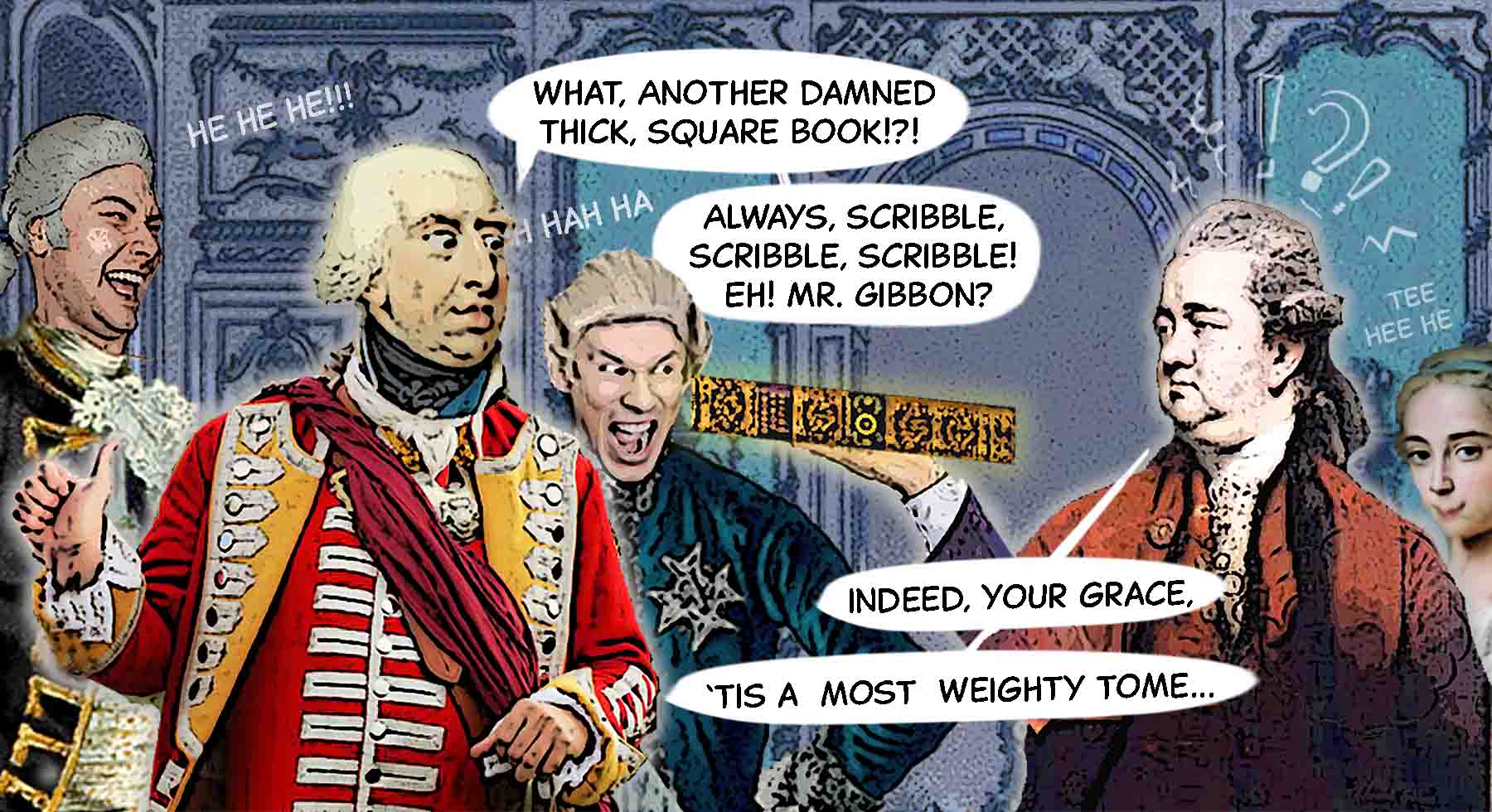
I picked “Always Scribble” as my site name because the story - Edward Gibbons' gift of his Decline And Fall of The Roman Empire to an English noble - makes me laugh.
Gibbons wrote this book - actually four books in all - after his Grand Tour, through the former Roman Empire.
Just picture Gibbons, a sensitive and earnest writer, a sort of eccentric Jane Austen secondary character, sprawled among Roman ruins - collapsed pillars, toppled columns, crumbling slave pens and whatnot - brooding over the fate of empire and the course of history.
After long struggle, Gibbons wrestled his passions, insights and language into 400 pages. Eager for notice, he presented this book to the King of England’s brother, His Royal Highness, William the Duke of Gloucester, at the Duke’s undoubtedly sumptuous court.
In 1778, a Duke’s favor was the equal of a New York Times book review today.
Unfortunately, the duke airily dismissed Gibbon’s genius.
“Another d-mn’d thick, square book! Always, scribble, scribble, scribble! Eh! Mr. Gibbon?'”
The scene fades to black amid the guffaws and derision of the Duke’s court, as a crestfallen Gibbon retreats to his lair.
Maybe, though, that’s not how it all happened. The Duke might have delivered his line with self-deprecation. Or maybe the Duke was drunk? Maybe Gibbon laughed along in good humor. The moment’s essence is lost to history.
Nonetheless, any creator can relate to the story, worried that whatever you have poured your heart into won’t be quite good enough put into the light. The elite may dismiss your opus with a glance and a giggle.
I choose to take the story a bit differently, though, as a reminder to not take it all too seriously.
First, find and embrace the humor and try not care too much about the crowd.
Secondly, and perhaps more importantly, I take the story in the imperative, as an order.
As Steven Pressfield says, just get to work.
Or, to put it another way, keep scribbling.
